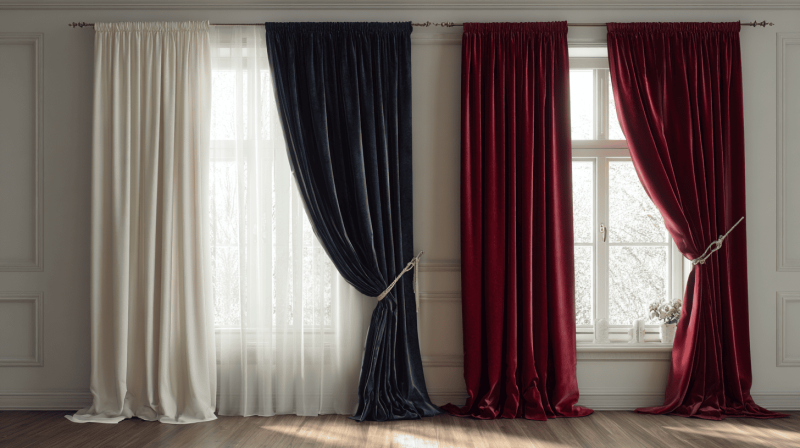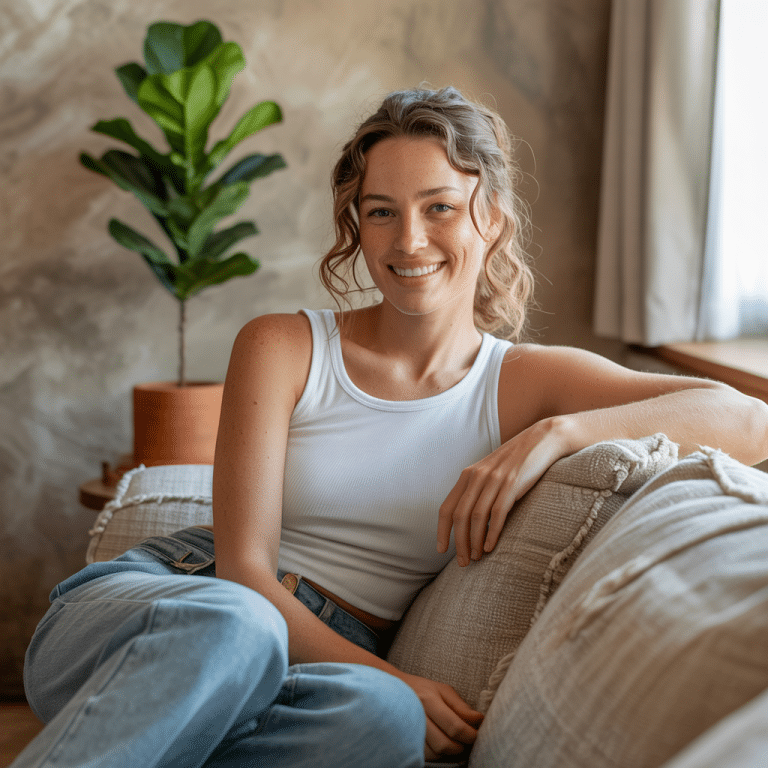When I’m shopping for window treatments, I get confused by all the different names.
Curtains and drapes both look similar, but they have different price tags.
You probably face the same confusion when trying to dress up your windows. By the end of this blog, you’ll know exactly what sets curtains apart from drapes.
I’ll break down the key differences. Additionally, I’ll help you determine which option is best suited for your home and budget.
Curtains vs Drapes
People often use the terms ‘curtains’ and ‘drapes’ as if they mean the same thing. But there’s a real difference between curtains and drapes.
It comes down to fabric weight, how they hang, and what job they do in your room. One is casual, the other is formal. One is light, the other is heavy.
What are Curtains?
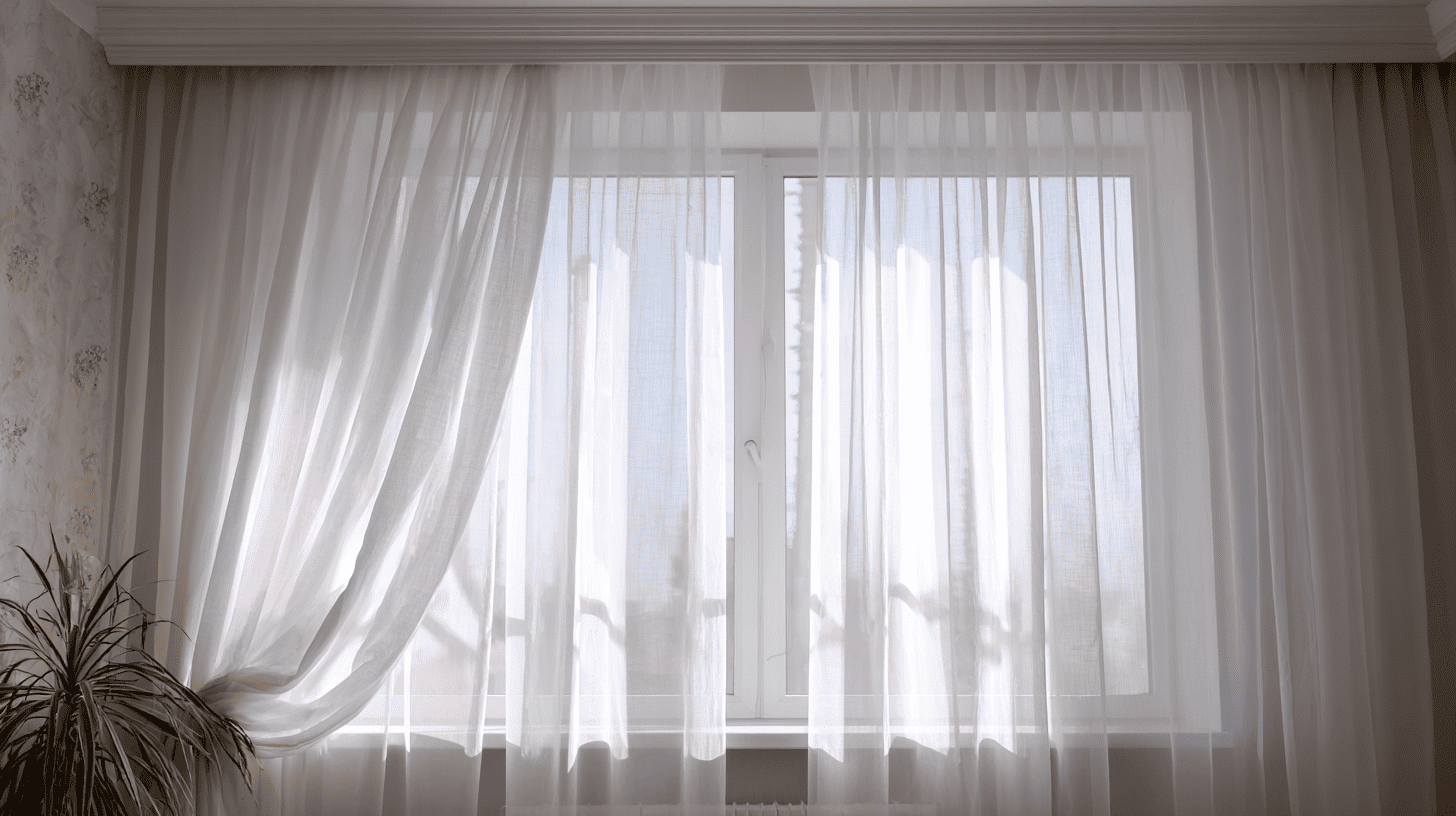
Curtains are lightweight window coverings made from thin fabrics, such as cotton, linen, or sheer materials. They typically hang from simple rods using loops, grommets, or basic tabs.
Most curtains are unlined, allowing light to filter through them easily. They’re perfect for adding a soft touch to your room without blocking out all the sunlight.
You might have often seen them in kitchens, bedrooms, and casual living spaces. Curtains are usually more affordable and come in a wide range of colors and patterns.
They’re easy to wash and replace when you want a fresh look.
Characteristics:
- Lightweight fabric: Made from cotton, linen, or sheer materials
- Simple hanging style: Use basic rods with loops or grommets
- Light filtering: Allow natural light to pass through easily
- Casual appearance: Perfect for relaxed, everyday spaces
- Easy care: Machine washable and low maintenance
What are Drapes?
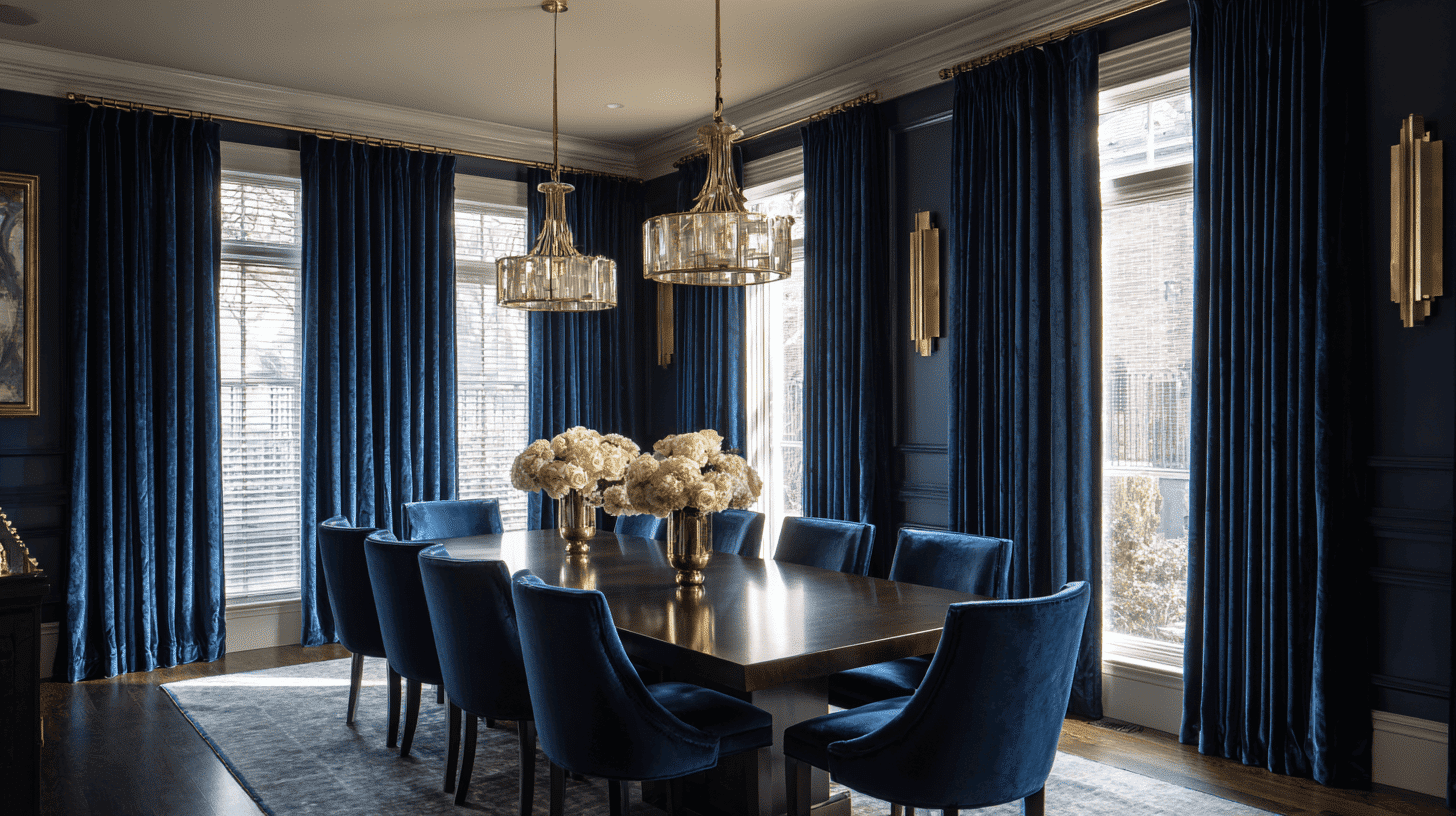
Drapes are the more formal counterpart of curtains. They’re made from heavier fabrics, such as velvet, silk, or thick cotton blends.
Most drapes come with a lining, which helps block light and insulate your windows. These window treatments typically hang from decorative rods and reach all the way to the floor.
They create clean, straight lines and add an upscale feel to any room. You’ll see drapes in dining rooms, formal living areas, and master bedrooms.
Drapes cost more than curtains, but they last longer and provide better privacy and light control.
Characteristics:
- Heavy fabric weight: Crafted from velvet, silk, or thick materials
- Lined construction: Include backing for insulation and light blocking
- Floor-length design: Hang formally from the ceiling to the floor
- Structured look: Create clean lines and a formal appearance
- Professional installation: Often requires decorative hardware and careful hanging
The Actual Difference
The following are key differences between Drapes and Curtains.
| Aspect | Curtains | Drapes |
|---|---|---|
| Fabric | Light materials like cotton, linen, sheers | Heavy fabrics like velvet, silk, and thick cotton |
| Lining | Usually unlined | Often lined or insulated |
| Length | Various lengths, often shorter | Floor-length, formal drop |
| Light Control | Filters light through | Blocks most light out |
| Price | Budget-friendly option | More expensive investment |
| Style | Casual, relaxed look | Formal, structured appearance |
| Installation | Simple rods, easy hanging | Decorative rods, professional look |
| Room Use | Kitchens, bedrooms, casual spaces | Dining rooms, formal areas |
| Maintenance | Easy to wash at home | Often needs professional cleaning |
| Privacy | Limited privacy coverage | Full privacy protection |
Now you know the key differences between curtains and drapes. Select curtains for a casual, light feel, or opt for drapes when you prefer a formal style and enhanced light control.
Uses of Curtains
Each window treatment works better in certain rooms and situations. Here’s where curtains shine brightest in your home.
1. Kitchen Windows
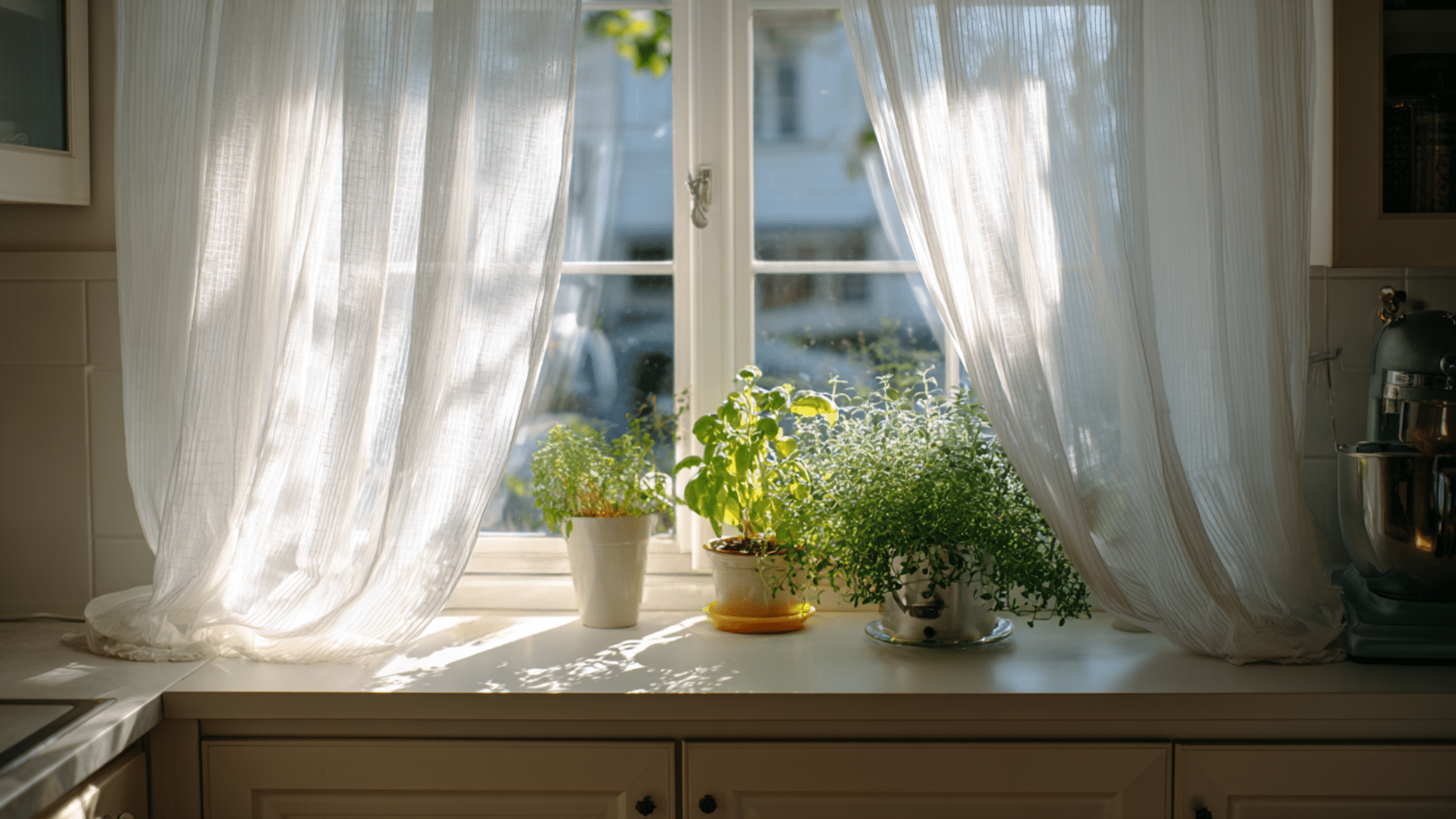
Light fabrics like cotton or linen resist moisture and cooking grease while still allowing plenty of natural light for meal preparation and daily tasks
2. Children’s Bedrooms
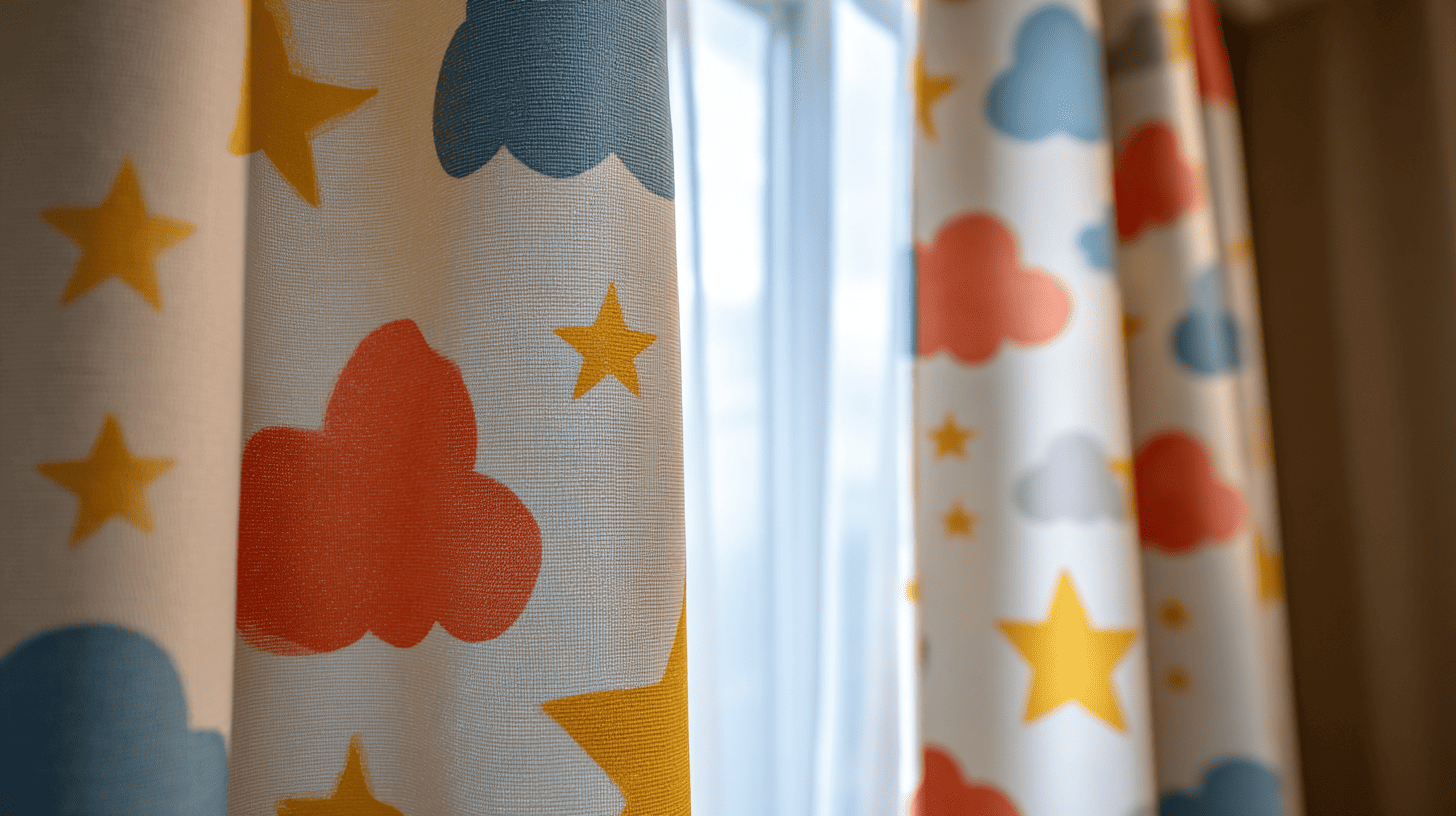
Soft, colorful materials create warm, cozy sleeping spaces and come in playful, machine-washable patterns that handle everyday spills and frequent cleaning needs
3. Bathroom Privacy
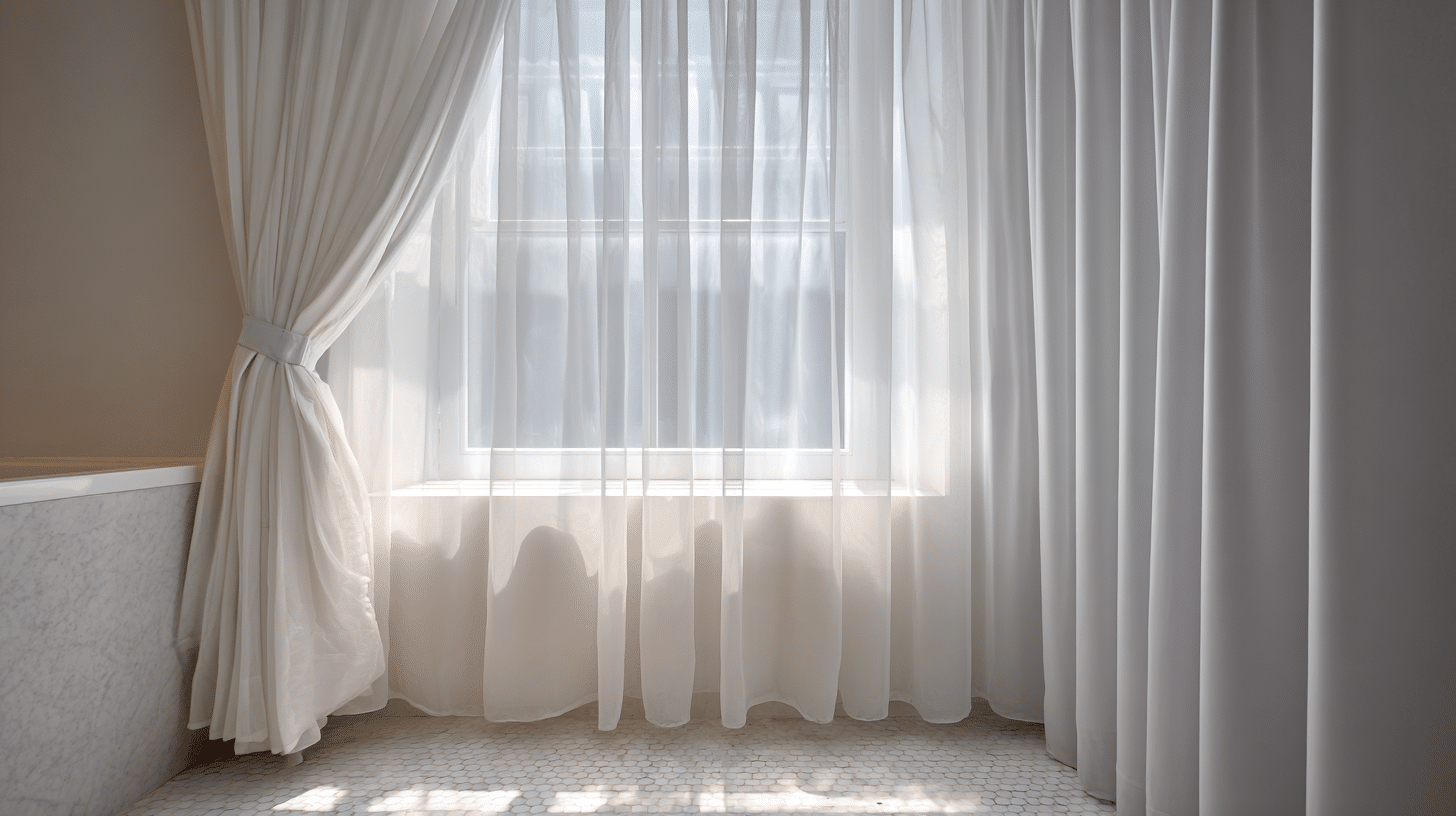
Sheer or semi-transparent curtains provide necessary coverage from outside views without completely blocking the natural light that makes small bathroom spaces feel larger
Uses of Drapes
Drapes work best in spaces where you want to make a statement and need serious light control. Here are three perfect spots for these formal window treatments.
4. Formal Dining Rooms
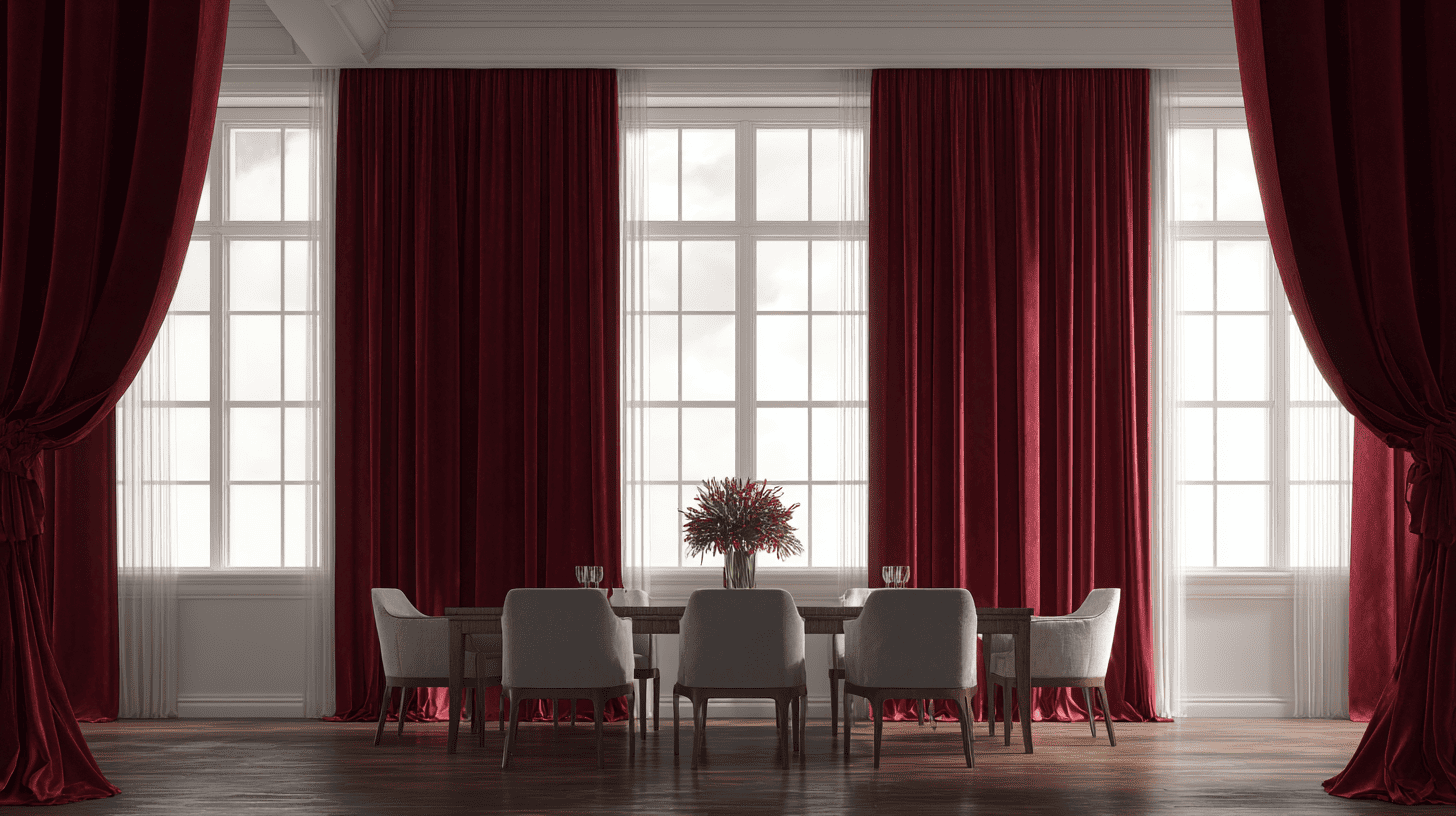
Heavy fabrics like velvet or silk add instant beauty and grace to special dining spaces where you entertain guests and host important meals
5. Master Bedrooms
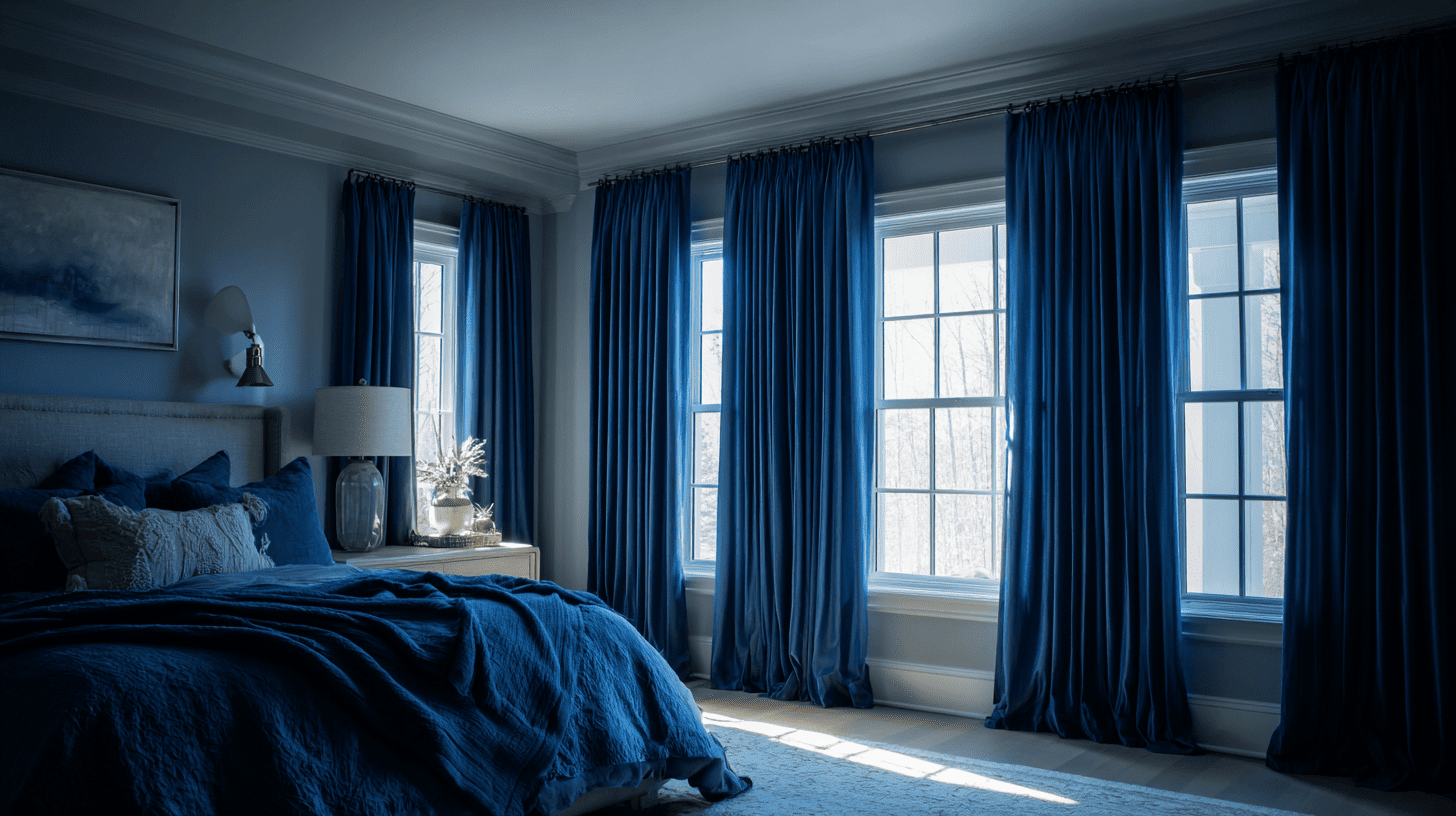
Fully lined drapes effectively block early morning sunlight and streetlights, creating a perfect, dark, and quiet sleeping environment for better relaxation.
6. Living Room Focal Points
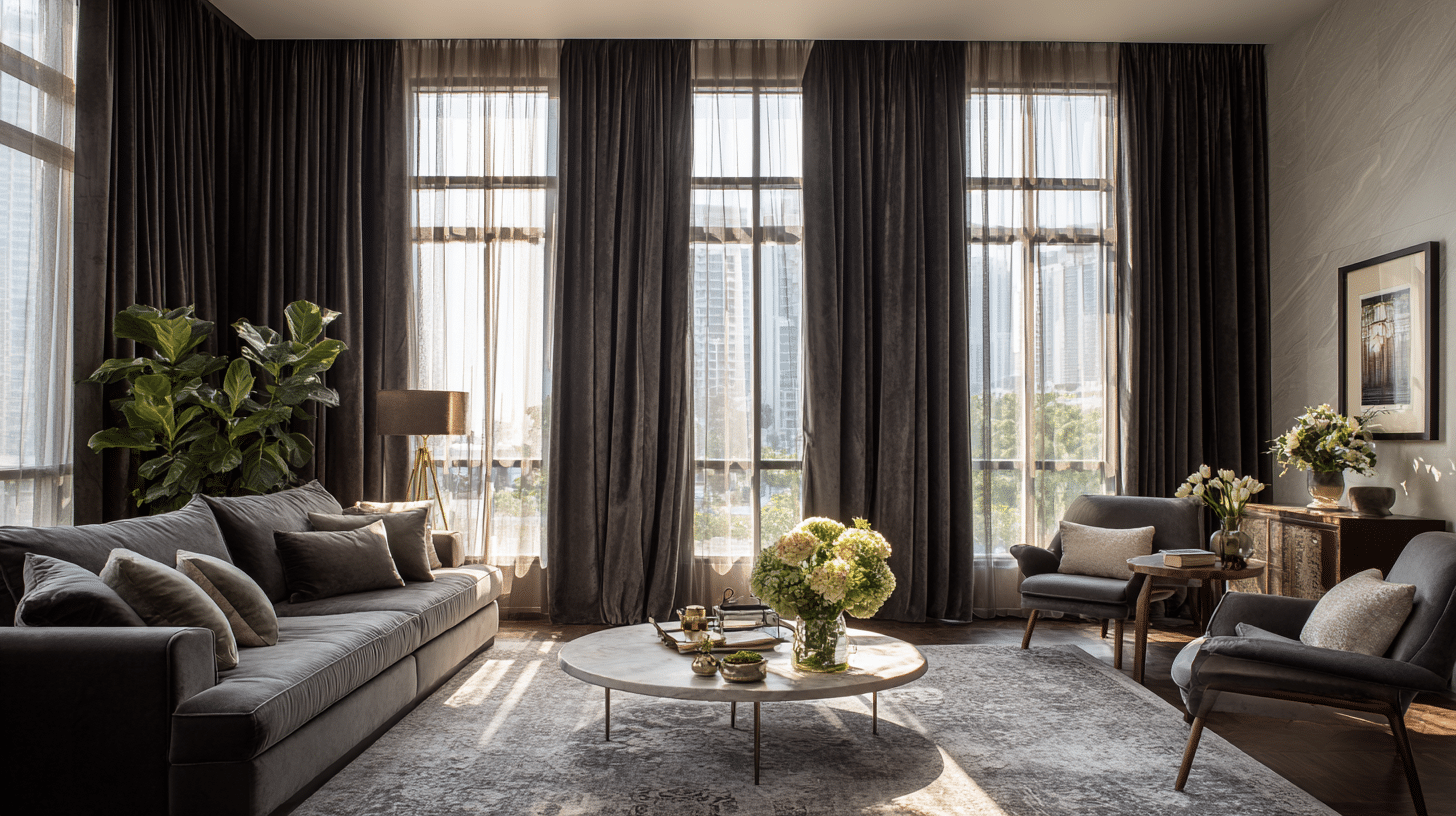
Floor-length drapes beautifully frame large picture windows and serve as striking design anchors that tie together your furniture arrangements and overall room decor
Choose based on your room’s function and style. Curtains work well in everyday spaces, while drapes are more suitable for formal areas.
The Similarities
While curtains and drapes have clear differences, they share several important features. Here are the key similarities between these two window treatments.
| Common Features | Description |
|---|---|
| Window coverage | Both hang over windows to provide privacy and style |
| Light management | Each controls the natural light entering your room |
| Privacy protection | Both block outside views into your home |
| Room decoration | Add color, pattern, and texture to any space |
| Temperature control | Help insulate windows against heat and cold |
| Noise reduction | Fabric layers muffle outside sounds |
| Rod hanging system | Both need rods or tracks for installation |
| Fabric construction | Made from various textile materials |
| Size customization | Available in different lengths and widths |
| Style options | Come in multiple colors, patterns, and designs |
Tips on Getting Started with Curtains and Drapes
Starting your window treatment shopping can feel overwhelming with the numerous choices available. Here are simple tips to help you make the right decision between curtains vs drapes
- Measure your windows first: Know your exact width and length before you start shopping for any window treatment.
- Consider your room’s purpose: choose curtains for casual spaces and drapes for formal areas where a more refined look is desired.
- Check your budget early: Curtains cost less while drapes require a bigger investment for quality fabric and installation.
- Consider light control: opt for curtains if you prefer filtered light or drapes for complete darkness.
- Match your home’s style: Casual decor works with curtains, while traditional or formal rooms look better with drapes.
- Plan for maintenance: Curtains wash easily at home, but drapes often need professional cleaning services.
- Start with one room: Test your choice in a single space before buying treatments for your entire house.
Follow these tips and you’ll pick the perfect window treatment for your space and budget every time.


